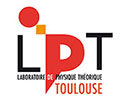Loading...
Derniers dépôts, tout type de documents
We analyze the Google matrix of directed networks of Wikipedia articles related to eight recent Wikipedia language editions representing different cultures (English, Arabic, German, Spanish, French, Italian, Russian, Chinese). Using the reduced Google matrix algorithm, we determine relations and interactions of 23 society concepts and 17 religions represented by their respective articles for each of the eight editions. The effective Markov transitions are found to be more intense inside the two blocks of society concepts and religions while transitions between the blocks are significantly reduced. We establish five poles of influence for society concepts (Law, Society, Communism, Liberalism, Capitalism) as well as five poles for religions (Christianity, Islam, Buddhism, Hinduism, Chinese folk religion) and determine how they affect other entries. We compute inter-edition correlations for different key quantities providing a quantitative analysis of the differences or the proximity of views of the eight cultures with respect to the selected society concepts and religions.
Quantum cloning is a fundamental protocol of quantum information theory. Perfect universal quantum cloning is prohibited by the laws of quantum mechanics, only imperfect copies being reachable. Symmetric quantum cloning is concerned with case when the quality of the clones is identical. In this work, we study the general case of $1 \to N$ asymmetric cloning, where one asks for arbitrary qualities of the clones. We characterize, for all Hilbert space dimensions and number of clones, the set of all possible clone qualities. This set is realized as the nonnegative part of the unit ball of a newly introduced norm, which we call the $\mathcal{Q}$-norm. We also provide a closed form expression for the quantum cloner achieving a given clone quality vector. Our analysis relies on the Schur-Weyl duality and on the study of the spectral properties of partially transposed permutation operators.
In the quest for robust and universal quantum devices, the notion of simulation plays a crucial role, both from a theoretical and from an applied perspective. In this work, we go beyond the simulation of quantum channels and quantum measurements, studying what it means to simulate a collection of measurements, which we call a multimeter. To this end, we first explicitly characterize the completely positive transformations between multimeters. However, not all of these transformations correspond to valid simulations, as evidenced by the existence of maps that always prepare the same multimeter regardless of the input, which we call trash-and-prepare. We give a new definition of multimeter simulations as transformations that are triviality-preserving, i.e., when given a multimeter consisting of trivial measurements they can only produce another trivial multimeter. In the absence of a quantum ancilla, we then characterize the transformations that are triviality-preserving and the transformations that are trash-and-prepare. Finally, we use these characterizations to compare our new definition of multimeter simulation to three existing ones: classical simulations, compression of multimeters, and compatibility-preserving simulations.
We introduce the Ising Network Opinion Formation (INOF) model and apply it for the analysis of networks of 6 Wikipedia language editions. In the model, Ising spins are placed at network nodes/articles and the steady-state opinion polarization of spins is determined from the Monte Carlo iterations in which a given spin orientation is determined by in-going links from other spins. The main consideration is done for opinion confrontation between {\it capitalism, imperialism} (blue opinion) and {\it socialism, communism} (red opinion). These nodes have fixed spin/opinion orientation while other nodes achieve their steady-state opinions in the process of Monte Carlo iterations. We find that the global network opinion favors {\it socialism, communism} for all 6 editions. The model also determines the opinion preferences for world countries and political leaders, showing good agreement with heuristic expectations. We also present results for opinion competition between {\it Christianity} and {\it Islam}, and USA Democratic and Republican parties. We argue that the INOF approach can find numerous applications for directed complex networks.
Sujets
Quantum information
PageRank algorithm
Mécanique quantique
Matrix model
CheiRank algorithm
Calcul quantique
Entanglement
ADMM
Qubit
Dark matter
Networks
Adaptive filters
Random graphs
Quantum denoiser
7215Rn
Numerical calculations
Semiclassical
Random matrix theory
Many-body problem
Community structure
Quantum Physics quant-ph
Ordinateur quantique
Chaos quantique
2DEG
Nonlinearity
Husimi function
Adaptive transform
Chaotic systems
FOS Physical sciences
Localization
Poincare recurrences
World trade
Anderson localization
Adaptive transformation
Directed networks
Clonage
Unfolding
Adaptative denoiser
ANDREAS BLUHM
Critical phenomena
Deep learning
Quantum mechanics
0375-b
Quantum chaos
Quantum many-body interaction
Entropy
PageRank
Chaotic dynamics
Wikipedia networks
Asymmetry
Wigner crystal
2DRank
Algebra
Duality
Covariance
Harper model
Cloning
Disordered Systems and Neural Networks cond-matdis-nn
Amplification
6470qj
Information theory
Semi-classique
Aubry transition
Google matrix
Hilbert space
Spin
Adaptive signal and image representation
Markov chains
Model
Fidelity
Toy model
International trade
2DRank algorithm
World trade network
Denoising
Solar System
Statistical description
Opinion formation
Random
Dynamical chaos
Quantum computation
2DEAG
Correlation
Decoherence
Wikipedia network
Atom laser
Wikipedia
Complex networks
Social networks
Chaos
Interférence
Quantum image processing
Super-Resolution
Plug-and-Play
0545Mt
Quantum denoising
CheiRank
Structure
Unitarity
Information quantique
